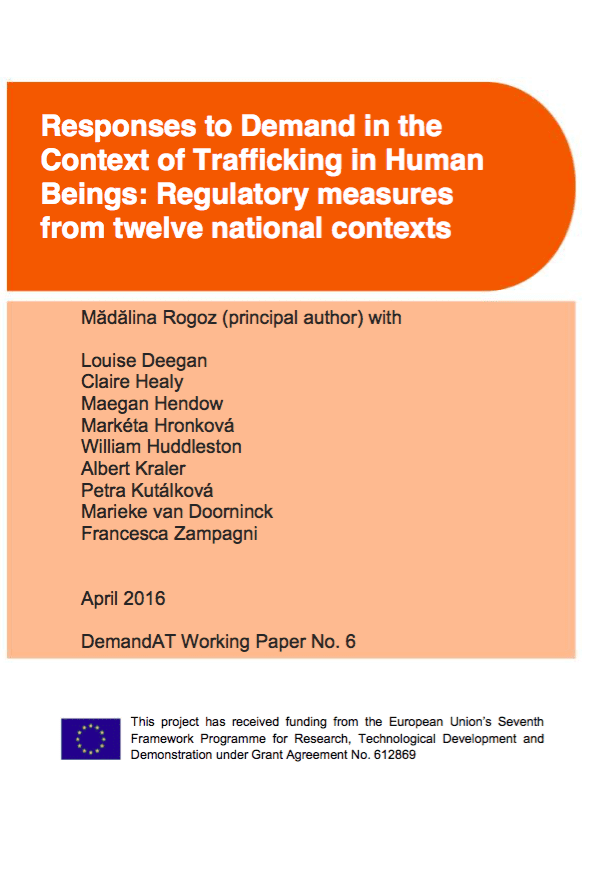
Responses to Demand in the Context of Trafficking in Human Beings: Regulatory measures from twelve national contexts
Addressing the demand that fosters trafficking in human beings is a requirement of the UN Anti-Trafficking Protocol. However, at the time the Protocol entered into force, signatory countries received no additional guidelines regarding what constitutes demand and what measures are to be implemented in order to reduce this demand. As a consequence, countries adopted various measures which can be regarded as addressing demand. This paper presents recurring types of such measures in twelve different national contexts. It begins by describing how demand is referred to and what kinds of measures are mostly employed to address it. The most common measures are then presented according to a typology distinguishing four types of mechanisms aimed at steering societal behavior – command and control, peer pressure, market-based and design. In the framework of anti- trafficking policies addressing the demand-side, these four types of mechanisms are implemented in combination.
